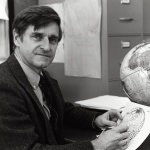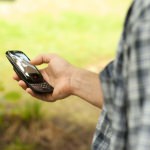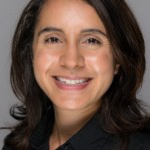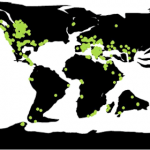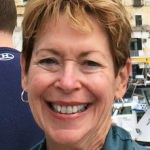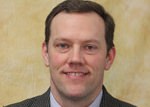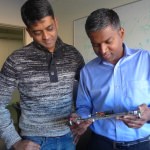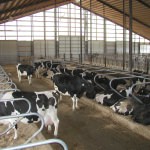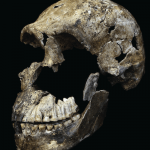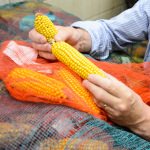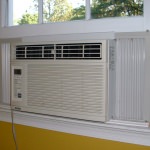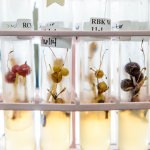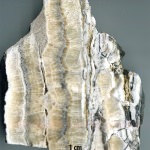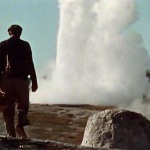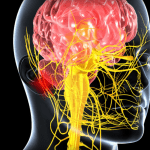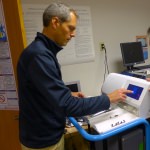Category Science & Technology
30-year collaboration earns UW climatologist China’s top science honor
University of Wisconsin–Madison climatologist John Kutzbach has been awarded China’s highest scientific honor for foreigners in recognition of 30 years of collaboration that has advanced both American and Chinese climate science. Read More
UW, GE Healthcare team up to improve medical imaging, patient outcomes
A multi-decade relationship between UW–Madison and GE Healthcare has created a stream of medical imaging inventions that look inside the human body with increasing accuracy. Read More
Triple play boosting value of renewable fuel could tip market in favor of biomass
Technologies for converting non-edible biomass into chemicals and fuels traditionally made from petroleum exist aplenty. But when it comes to attracting commercial interest, these technologies compete financially with a petroleum-based production pipeline that has been perfected over the course of decades. Read More
UW researchers recognized for smartphone app aimed at preventing substance abuse relapse
A UW–Madison research team was selected as one of seven finalists in Harvard’s Innovation in American Government competition, for its work in creating a smartphone application that helps people recover from addiction to alcohol and other substances. Read More
UW-Madison biochemist wins Shaw Scientist Award
Ophelia Venturelli's research may lead to the ability to engineer behaviors among beneficial microbes in the gut ecosystem, which could be used to enhance their resilience to invasion by pathogens or unintended impairment from antibiotics. Read More
UW-Madison spinoff highlighted as innovation success story in national report
“American-Made Innovation Sparking Economic Growth” identifies 102 companies that trace their roots to federally funded university research. Read More
Patient’s cells used to replicate dire developmental condition
“This is the first demonstration of using a patient’s cells to model a blood-brain barrier defect,” explains Eric Shusta, a UW–Madison professor of chemical and biological engineering and a senior author of the new study published today. Read More
As computing moves to cloud, UW–Madison spinoff offers faster, cleaner chip for data centers
A UW–Madison professor has formed a startup to advance a streamlined chip design that will run up to 10 times faster than those now inside data centers. Read More
UW program aims to update buildings so dairy cows can be happy
Wisconsin farmers consult with the UW's Nigel Cook, an expert in scientific treatment of dairy cows — which, Cook says, is sensible, humane and profitable all at once. Read More
South African cave yields yet more fossils of a newfound relative
The discovery of the new Homo naledi fossils, representing the remains of at least three juvenile and adult specimens, includes a “wonderfully complete skull,” says UW–Madison anthropologist John Hawks. Read More
New center brings together biologists, engineers to improve crops
The phenotyping center at the Wisconsin Crop Innovation Center aims to develop new ways to measure plants and address novel questions about what factors influence crop performance. Read More
Study measures air pollution increase attributable to air conditioning
The study shows the electricity production associated with air conditioning causes emissions of sulfur dioxide, nitrogen oxides and carbon dioxide to increase by hundreds to thousands of metric tons. Read More
From test tube to plate, UW–Madison program keeps potatoes clean
The Wisconsin Seed Potato Certification Program, a 104-year-old program run by UW–Madison, is dedicated to supplying Wisconsin farmers with quality, disease-free tubers. Read More
Geologists use radioactive clock to document longest earthquake record
UW-Madison geoscience department researchers have peered back in time more than 400,000 years to illuminate a record of earthquakes along the Loma Blanca fault in New Mexico. Read More
New book gives personal account of pioneering Yellowstone research
In a new book, “A Scientist in Yellowstone National Park”, UW–Madison Emeritus Professor of Bacteriology Tom Brock has written a personal account of life as a field researcher. Read More
Brain boot camp: New technology aims to accelerate learning
UW-Madison researchers are part of an effort to develop a low-cost, easy-to-use system that aims to accelerate learning by stimulating nerves in the head and neck to boost neural activity in the brain. Read More
Oberhauser named director of Arboretum
Internationally known monarch butterfly researcher Karen Oberhauser, a University of Minnesota conservation biologist, is returning to UW–Madison, where she studied as an undergraduate. Oberhauser has accepted the position of UW–Madison Arboretum director. Read More
Advances breathe new life into Madison infection-detection company
A UW–Madison spinoff called Isomark is working to introduce a new infection-detection technology into hospital intensive care units. Read More

